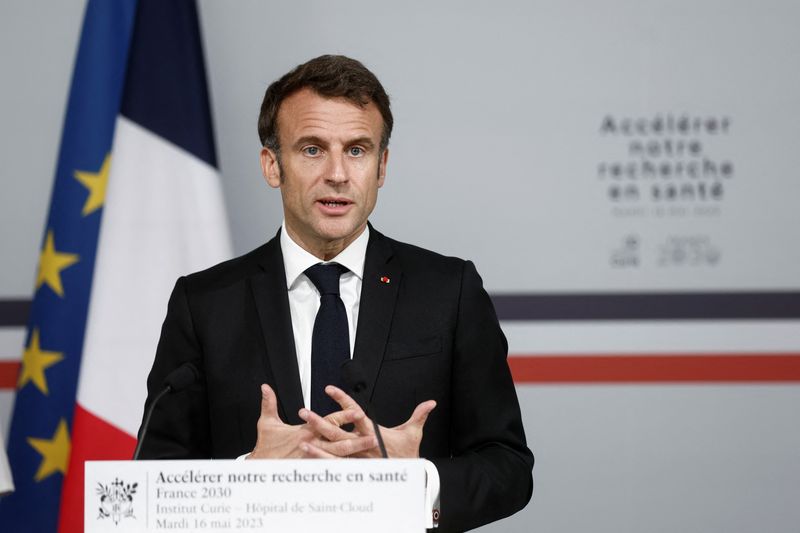PARIS (Reuters) - Investments that France needs to finance its transition to a low-carbon economy are set to add 25 percentage points to its debt burden by 2040, a report from the government-funded France Strategie think-tank said on Monday.
France will need to make additional annual investments of about 67 billion euros ($74 billion) - more than 2% of economic output - by 2030 to meet its objectives for reducing its dependence on fossil fuels, France Strategie calculated.
The think-tank, which is part of the prime minister's office, said the financial effort would weigh heavily on public finances partly because the investments imply lower potential growth, which would cut tax revenues.
As a result, the debt burden would rise by 10 percentage points by 2030 and 25 percentage points by 2040, which France Strategie suggested might need to be financed in part by a temporary tax on wealthy households.
President Emmanuel Macron's government has hoped to chip away in the coming years at France's national debt, which currently stands at slightly more that 111% of gross domestic product after surging during the COVID crisis.
The report said the financial burden of investing in Europe's energy transition also posed a risk in terms of international economic competition, as other major economies such as the United States and China were less concerned about budgetary constraints.

About 100 experts in French and European research groups as well as public French institutions participated in the report, which was led by economist Jean Pisani-Ferry, who previously helped Macron draft his economic programme.
($1 = 0.9084 euros)